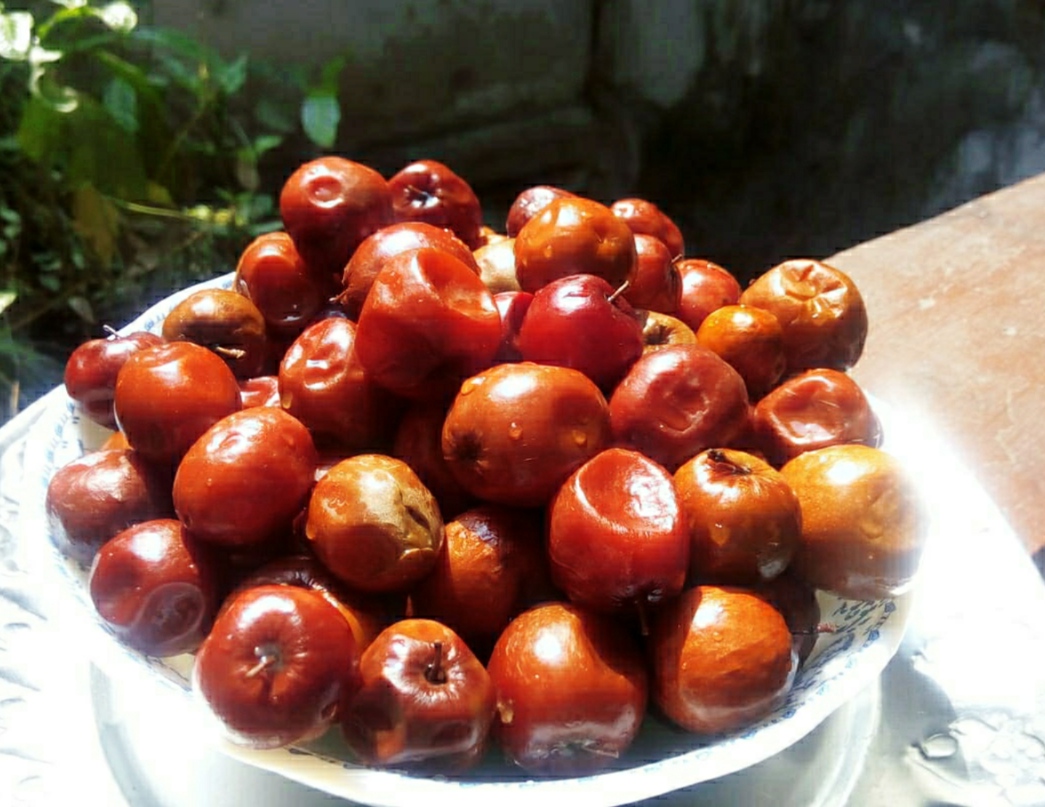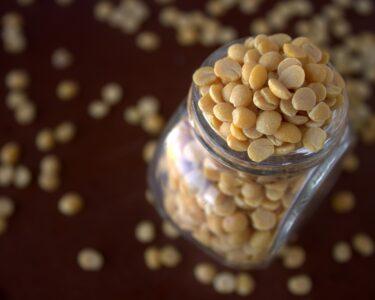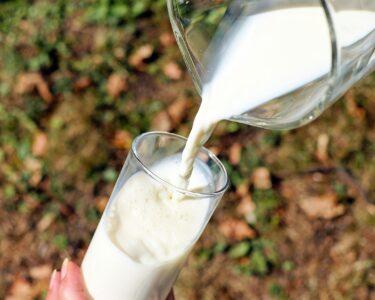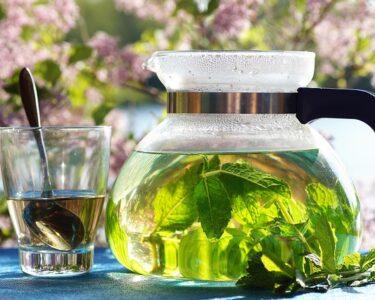Ber is a commonly available, seasonal tasteful fruit. Ripe ber is abundantly available in Indian markets for only two months (February and March) in a year which is the season for it [1]. This fruit is mainly grown in Haryana, Punjab, Uttar Pradesh, Rajasthan, Gujarat, Madhya Pradesh, Bihar, Maharashtra, Andhra Pradesh and Tamil Nadu [2].
Ber or Jujube is a valuable fruit, from both nutritional and nutraceutical point of view [3]. In Bangladesh ber is famous in other names, as “boroi” or “kul”[4].
Ber or Jujube is mostly grown in Southern and Eastern Asia, Europe, Australia, and the Mediterranean basin. It has a long history of usage as fruit and remedy for many diseases [5].
Ber or jujube is known to the Indians in different names in different parts of India. In Sanskrit language ber is known as “Rajabadari” whereas it is called “Ber” in Urdu and Hindi. To the Bengali people, ber is famous in the name of “kul”. Punjabi population called Jujube (Ber) as “Beri”, Assamese called as “Bogori”, Uriya called as “Bodori”,Gujarati called as “Bordi”, Marathi called as “Bor”, Malayalam called as “Badaram”, Kannada called as “Bogari”, Tamil called as “Vadari”, Telugu called as “Renu” Sindhi called as “Jangri” and so on [6].
Despite being a cheap fruit, jujube still remains to be an underutilized fruit in the average Indian diet in comparison to costlier yet popular fruits such as mango, apple, and orange. This is mainly because the common consumer has no information about its health-promoting effects [7].
Ber is traditionally consumed as a fresh fruit but sometimes it also dried for future consumption. Itis also used in Traditional Chinese Medicine (TCM) for calming down the mind and facilitate sleep and for the treatment of gastrointestinal problems, weakness, hepatitis, urinary troubles, skin infections, fever, pharyngitis, bronchitis, anemia, and cancer. Both green and ripe ber are rich in antioxidants [3].
But there is a considerable amount of variation in their phenolic content and antioxidant activity among the different types of ber or jujube [8].

Summary
Ber is a popular fruit among Indians. It is cultivated in different states of India. It is also famous in different names in different countries like Bangladesh, China, Europe, Australia, etc. Both green and ripe ber (jujube) is a rich source of several types of antioxidants. In spite of its good nutritive and nutraceutical properties, ber is an underutilized fruit in our country.
Ber fruits are being consumed all around the world as both food and herbal medicine[9]. Ber contains several biologically active compounds and antioxidants. The list of bio-active compounds presents in Ber and their physiological roles in our body summarised in the following list –
List of bio-active compounds presents in Ber and their physiological roles-
1.Antioxidant activity-
Overall the Antioxidant activity values for ber is comparable with anthocyanin-rich red fruits like plum and strawberry[7].
2. Vitamin-C-
Ber is an excellent source of ascorbic acid or vitamin-C, which is comparable with that of mango, papaya or guava.
- Ascorbic acid acts as a free radical scavenger and plays an important component of the antioxidative defense mechanism of our body.
- Increased intake of vitamin-C also protects the lungs against the oxidizing agents present in cigarette smoke.
It also helps to detoxify the hazardous effects of stannous chloride commonly used as a preservative in soft drinks[7].
3. Total phenolic content (TPH) –
- Phenolics are considered a powerful antioxidant. The high phenolic content of ber indicates that this fruit is an excellent source of antioxidants that have health-promoting benefits. [7].
- Caffeic acid, p-hydroxybenzoic acid, ferulic acid and p-coumaric acid are predominant phenolics present in ber. These bio-active compounds account for its significant antioxidant activity, reducing power activity and scavenging of free radical activity. [10].
4. Flavonoids –
- Act as antioxidants. [11].
- Flavonoid, cAMP, and jujuboside together protects the nerve cells from the neurotoxin stress, improve memory and promote learning. [11].
- Flavonoids have many beneficial health effects like-
- They play important roles in the prevention of inflammation.
- They inhibit platelet aggregation,
They also possess antimicrobial properties. [7].
5. cAMP –
This compound has a neuroprotective property[11].
6. Triterpenic acids –
- This active ingredient present in jujube is responsible for the anti-inflammatory properties of ber or jujube. For this reason, ber intake is beneficial for persons suffering from inflammatory bowel disease[12], [13].
- Scientific studies indicated that triterpenic acids present in ber fruits have antiproliferative and anticancer effects on various cancer cell lines[14].
- It also has an anti-inflammatory property[14].
- It acts as an antimicrobial agent. [14].
It is a hepatoprotective compound, so it helps to protect our liver from the toxic ingredients. [14].
7. Betulinic acid –
- This compound helps to inhibit inflammation.
- It also has an antibacterial property.
This compound helps to maintain the good health of the heart. [11].
8. Jujuboside B –
- This compound has beneficial effects on the cardiovascular system. [11].
- It has a neuroprotective effect.[11].
9. Polysaccharides –
- Acts as antioxidants. [11].
- Help in the formation of blood. [15].
- Act as an immune-modulating substance that stimulates or suppresses the immune system to help the body to fight cancer, infection, or other diseases. [16].
10. Pectin –
- Ber contains pectin which plays the following important roles in our body-
- binding of bile acid,
- lowering the plasma cholesterol helps to treat diarrhoea [6].

Summary
Ber contains several bioactive compounds and antioxidants. It is a good source of ascorbic acid or vitamin-C, phenolics (like Caffeic acid, p-hydroxybenzoic acid, ferulic acid and p-coumaric acid), Flavonoid, cAMP, and jujuboside, Triterpenic acids,Betulinic acid, Polysachharides etc. Each compound has unique beneficial effects on our body which together promotes our good health.
Nutritive value of Ber
Laboratory studies determine the nutritive value of ber which revealed that ber is a low-calorie fruit, rich in micronutrients like vitamins and mineral but it is a poor source of macronutrients like protein, fat and carbohydrate [17].
Ber- A superfruit
Due to the presence of several types of bioactive compounds and antioxidants in a tasteful, highly nutritious fruit, ber intake boost our general health and prevent many diseases in the following ways-
Ber improves general health because –
- It is a rich source of several minerals, which help to maintain the electrolyte balance of the body and preventing electrolyte imbalance.
- It is rich in many vitamins like beta carotene, vitamin-C and B complex vitamins, helping the body to maintain optimum health.
- As a source of a diverse group of antioxidants, regular intake of ber help to prevent oxidative stress and thus prevent many lifestyle diseases like –
- obesity,
- diabetes,
- hypertension
- heart diseases
- liver problems
- cancers.
So, ber is a good choice of fruit for anyone, irrespective of age and sex.
The positive effect of Ber on the digestive system –
- The anti-inflammatory action of Betulinic acid and Triterpenic acids
- Antimicrobial effectBetulinic acid and Triterpenic acids
- Anticarcinogenic activity of Triterpenic acids.
- Laxatives effect of dietary fiber.
- Hepato-protective action of Triterpenic acids.
- Detoxifies the hazardous effects of stannous chloride commonly used as a preservative in soft drinks [7].
So, ber is beneficial for those suffering from
- Lack of appetite [7].
- Poor digestion [7].
- Constipation [17], [18].
- Flatulence
- Hyperacidity
- Inflammatory Bowel disease [12].
- Mild liver diseases [19].
The positive effect of Ber on the Respiratory system
- Ber is a very good source of vitamin-C. Increased intake of vitamin-C protect the lungs from the toxic agents present in cigarette smoke. So, ber protects your respiratory system [7].
- Ber is rich in antioxidants that play beneficial roles in the prevention of cancer.
So, intake of ber fruits is good for those-
- Habituated to smoking
- Exposed to air pollution i.e. especially those living in the urban areas.
- Having a tendency of cough and cold.

The positive effect of Ber on the Cardiac System
- Help in the formation of blood [15].
- It lowers blood pressure due to the presence of ϒ-aminobutyric acid (GABA) [20].
- Good for the heart due to the presence of betulinic acid and jujuboside B [11].
So, intake of ber fruits is good for those-
The positive effect of Ber on the Nervous System
- Improves sleep since ϒ-aminobutyric acid (GABA) is present in ber [20].
- Neuroprotective activities of flavonoids, cAMP, and jujuboside[9], [21].
- Natural Anxiolytic agent[7], [21].
- Stress-reducing effect [22].
- Memory booster
- Promotes learning
So, ber is the choice of fruit for those who-
- Are studying
- Have insomnia
- are anxious in nature.
- lead a stressful life
- are suffering from nerve disease.
The positive effect of Ber on the skin.
Ber is beneficial for the skin because of its
- Vitamin-C content
- High antioxidant content
- antiallergic property[19].
- antibacterial property[19], [21].
- anti-inflammatory property.
- Vitamin-C along with other antioxidants present in jujube maintains your skin health and prevents aging. Antiallergic, anti-inflammatory, antibacterial properties of ber prevent rashes and discoloration of the skin. So, for maintaining glowing skin, you can take ber.
The positive effect of Ber on Immunity.
- Ber has a strong antibacterial property[19], [21]. It is effective to prevent many types of diseases caused by a wide variety of gram-positive and gram-negative bacteria. So, ber is a gut-friendly food, regular consumption of ber helps to maintain gut health and prevent common digestive disorders.
- It has antiseptic properties
- It ensures rapid wound healing.
- Flavonoids present in ber help to prevent inflammation.
- It acts as an antimicrobial agent [14].
So, ber or jujube helps to improve immunity and thus reduces the incidence of infection. Itis traditionally used in Chinese medicine to cure many diseases caused by bacteria. Regular intake of ber is good for those frequently suffered from infection.
Summary
Ber has several health benefits. It is good for our brain, heart, liver, gut, lungs, and skin. It improves our general health, promotes memory and learning capacity and improves immunity.
Q. Is there any good or bad effect of ber on the growing children (students)?
Ber is a healthy food, which may be taken liberally by the growing children (students). It has the following health benefits for growing children.
- It has an antibacterial property [11].
- It helps in the formation of blood [15].
- It is good for maintaining the good health of the brain, heart, lungs, liver, and skin.
- It improves the memory of young children.
- It promotes learning.
- It supplies several antioxidants required for maintaining optimum health.
- It improves immunity and helps to prevent many diseases.
Q. Ber can be taken by elderly people? Is there any adverse effect of taking ber at old age?
Ber is a nutritious fruit, containing several types of antioxidants. It has not any adverse effects. Elderly people can safely consume ber. The anti-inflammatory, antimicrobial, antidiabetic, hepatoprotective, neuroprotective and anticancer properties of ber make it a perfect choice of fruit for the elderly people [11], [21]. Regular consumption of ber fruits is beneficial for old people because of-
- Maintains the blood glucose level and prevent the risk of diabetes [17], [19].
- Maintains normal blood pressure, prevents hypertension and other cardiac problems.
- Maintains the cognitive ability
- Prevent neurodegenerative diseases
- Protects the liver
- Improves immunity
- Prevent recurrent infections, like abdominal problems and the common cold.
- Reduces the risk of cancer.
Summary
Ber is good for growing children, adolescents and the elderly. This fruit can be taken by anyone at any age without any adverse effects.
After knowing the detail antioxidant profile of the Ber fruits, you should realize that it is not just a seasonal fruit that is to be taken occasionally. Rather it is a powerhouse of nutrients and nutraceuticals which is the key to maintaining good health and retaining the cognitive ability even at old age and reducing the risk of lifestyle diseases.
Bottom Line
Ber is a popular seasonal fruit commonly consumed by Indians. It is cultivated in different states of India. It is also famous in different names in different countries like Bangladesh, China, Europe, Australia, etc. Both green and ripe ber (jujube) is a rich source of several types of antioxidants. In spite of its good nutritive and nutraceutical values, ber is an underutilized fruit in our country.
Ber contains several bioactive compounds and antioxidants. It is a good source of ascorbic acid or vitamin-C, phenolics (like Caffeic acid, p-hydroxybenzoic acid, ferulic acid, and p-coumaric acid), Flavonoid, cAMP, and jujuboside, triterpenic acids, Betulinic acid, Polysaccharides, etc. Each compound has unique beneficial effects on our body which together promotes our good health.
Ber has several health benefits. It is good for our brain, heart, liver, gut, lungs, and skin. It has hepato-protective, neuro-protective, anti-diabetic, cardio-protective, anti-inflammatory, anti-proliferative, antiseptic, antimicrobial and anticarcinogenic properties, making it super fruit. Regular intake of ber or jujube improves our general health, promotes memory and learning capacity and improves immunity.
Ber is good for growing children, adolescents and the elderly. This fruit can be taken by anyone at any age without any adverse effects. It is a powerhouse of nutrients and nutraceuticals which is the key to maintaining good health and retaining the cognitive ability even at old age and reducing the risk of lifestyle diseases.





